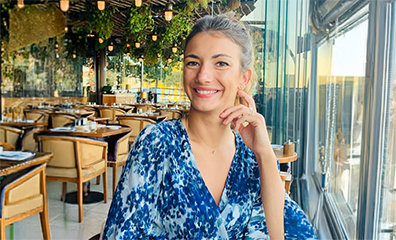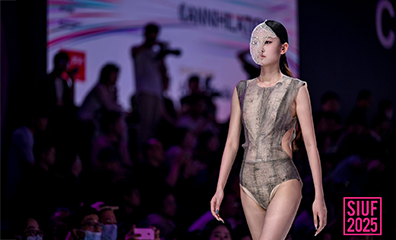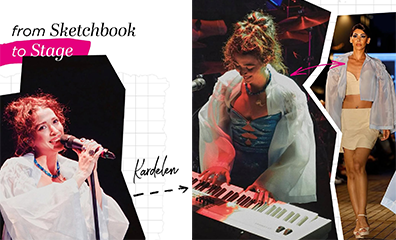The Fashion Scene: Parisian Colette closes – is it the end of Concept Stores?
Posted on 16/01/2018
On December 20th 2017, the famous Parisian concept store Colette closed down for good. While the closure is officially because of the founders’ weariness, does this signal the end of concept stores and what does this mean for the future of fashion retail?
After 20 years, the cult Parisian concept store, Colette, closed its store on December 20th, 2017, as founder, Colette Rousseau, wished to “take her time” and her daughter, Sarah Andelman, did not want to continue the Colette adventure without her mother. Despite disagreements in the fashion world wondering if concept stores are profitable, for Colette it was more about being pertinent in today’s environment, as mentioned by Sarah Adelman in a Vogue interview.
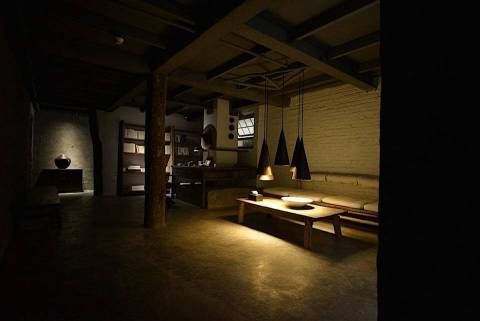
Wu Yong Store in Beijing
“There was a certain point, when we began to realize that 20 years is a good age. It was either that we needed to change everything and start from scratch because it wasn’t as fresh as we wanted or we just turn the page or start something else” (interview of Sarah Andelman by Amy Verner, vogue.com, December 19th 2017). Has the novelty of concept stores worn out?
Concept stores showcase carefully picked brands and products to form an overarching theme. And, it has had its fair share of success in major cities from Lagos to Berlin, Paris to Seoul. In Paris alone, there are several successful concept stores, like Merci; Broken Arm; and Centre Commercial. The Colette “concept” which was supposed to federate the multitude of different items sold in the store and on its e-commerce website and can be defined with the “hype”, the “trendiness” is not an element of identification good enough anymore to gather a group of consumers and to be different from the competition. Plus, even big name brands are opening flagship stores incorporating the same principles as a concept store - selling fashion, decorative items and even including a coffee shop, bookstore or exhibition space within the same store. The Dior flagship store in Seoul is a perfect illustration of this evolution.
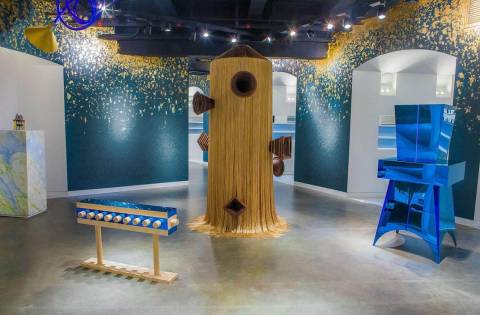
Gentle Monster Store in Shanghai
At a time when everything can be bought online and delivered, do we still need physical stores? As Doug Stephen, founder of Retail Prophet, explains in an article for Business of Fashion, the role of physical stores won’t be to sell products, but instead allow consumers to have unique experiences and create a relationship with the brand.
This doesn’t mean there won’t be anything to sell in stores, but this won’t be their main objective anymore. According to Doug Stephen, this evolution means “Stop thinking “stores” and start thinking stories, stop thinking “products” and start thinking “productions” (“To save retail, let it die” Doug Stephen, Business of Fashion, September 5th, 2017).
Two current brands seem to be embodying this future of retail: the first one is the brand Wu Yong from Chinese designer Ma Ke. Her only boutique, located in a Beijing neighborhood, far away from other luxury outlets, is a former print shop turned into a living museum of popular Chinese traditions.
Visitors enter the store into a vast exhibition space, where they are greeted with sophisticated scenes and objects from the past. The following spaces, inspired by traditional farmers’ houses, aim at “connecting the visitor with the power and the beauty of the hand-made” without ever drawing a clear border between the decor and what can be bought, between the museum object and the product to sell. Although not consensual, the experience that this place provides is even stronger since it is perfectly coherent with the brand identity which defines itself as ethically and ecologically responsible, as well as a courier of cultural heritage.
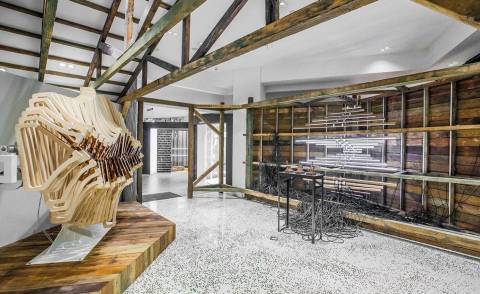
Gentle Monster Store in Shanghai
The second example is the Korean eye and sunglass brand “Gentle Monster”. Stores are found in Seoul and other South Korean cities as well in Beijing, Shanghai and Los Angeles. Although each store is different, all include incredible and surreal staging, decor and machinery spread out on commercial surface areas of hundreds of square meters. This may seem excessive as the only product being sold is eyewear, however, each visit to the store is a fun and surprising experience and creates a unique relationship to this glasses brand, whose designs are as off-the-wall as the store.
What is coming is not necessarily the end of concepts stores, but its future transformation. This affects how the retail industry needs to discard the idea of a single range of products and instead embrace creating an experience for consumers to bond with the brand. Therefore, 2020 Colette is still to be invented.
